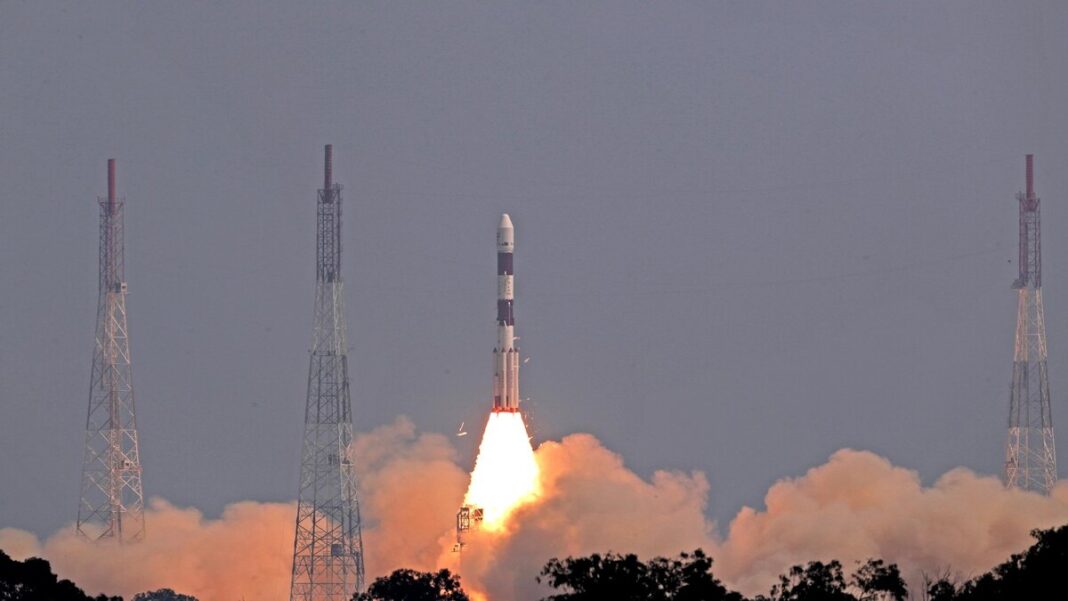INDIA: While the budding start-up sector is expected to grow in the space applications segment, the Indian Space Research Organization (ISRO) will shift its focus to research investigations in 2023 with dedicated missions to the sun (Aditya) and the moon (Chandrayaan-3).
The Gaganyaan project, India’s first human space flight, will conduct several experiments in the coming year, with the first unmanned mission scheduled for the fourth quarter of 2023.
These experiments will evaluate the performance of the human-rated launch vehicle, the orbital module propulsion system, and the recovery procedures.
According to Jitendra Singh, a Union Minister of State in the Prime Minister’s Office, ISRO further plans to carry out the first runway landing experiment (RLV-LEX) of the reusable launch vehicle early next year from the Aeronautical Test Range in Chitradurga, Karnataka.
Indian start-ups made their presence known with the first sub-orbital launch by a commercial company, Skyroot Aerospace’s Vikram-S rocket, and the launches of Pixxel’s hyperspectral satellites Shakuntala and Anand on SpaceX’s Falcon-9 and ISRO’s PSLV, respectively, in April and November.
A client satellite will be launched into orbit by Skyroot Aerospace, which launched India’s first privately developed rocket in November, at some point in 2019.
The test flight of Agnikul Cosmos’ highly adaptable Agnibaan rocket has also been scheduled. The company is situated on the IIT-Madras campus.
According to Awais Ahmed, co-founder and CEO of Pixxel, the firm is developing six commercial hyperspectral photography satellites that will be ready for launch next year.
According to Ahmed, the initial orbital launches of many more rocket businesses throughout the world will result in a rocket-themed game of thrones as they compete for the same group of clients launching satellites into orbit.
The start-ups are focusing on the enormous space applications market in the nation, which was previously the sole purview of ISRO.
They are also planning to take tourists into space and have already carved out a niche for themselves in the earth imaging industry.
According to Chaitanya Dora Surapureddy, Chief Financial Officer of Dhruva Space, “The potential for cutting-edge space applications is immense, especially if established aerospace companies form partnerships with businesses that traditionally haven’t ventured into orbit, e.g., pharmaceutical and agriculture companies.”
Onboard ISRO’s PSLV C-54 mission, Dhruva Space launched two satellites, Thybolt 1 and 2, demonstrating the feasibility of amateur satellite communication that will support ham radio operations.
According to Surapureddy, Dhurva Space has already secured its first commercial contract for the construction of satellites, valued at Rs. 20 crore.
According to Lt Gen A K Bhatt (ret.), Director General of the Indian Space Association (ISpA), “The number of space companies in India has now surpassed 100, and these startups have attracted finance of more than USD 245.35 million.”
At ISRO’s Satish Dhawan Space Centre in Sriharikota, Agnikul also debuted its first launchpad and mission control centre.
The space industry achieved some significant milestones in 2022, with NewSpace India Limited (NSIL) awarding a contract worth 860 crores to the space conglomerate made up of Larsen & Toubro (L&T) and Hindustan Aeronautics Limited for the commercial development of the following five Polar Satellite Launch Vehicles (PSLVs).
OneWeb also contracted with ISRO to use their launch vehicle to deploy 36 satellites from Sriharikota into low-Earth orbit.
Next year, 36 additional satellites are anticipated to be launched as a follow-up.
It is known that the Indians aggressively competed for the OneWeb contract with ISRO after the crisis in Ukraine forced the Russian space launch capabilities off the market.
The aggressiveness of the Indian space industry, according to Chaitanya Giri, a space consultant with the Research and Information System for Developing Countries, is comparable to that of Sourav Ganguly’s cricket team.
“Our earlier approach was very composed and polite; like Mohammad Azharuddin’s cricket team, India’s growing geopolitical importance is what’s driving its newly discovered hostility.” “Additionally, the situation in Ukraine has made it impossible to do business with Russia. The Chinese market is similar. Now, India has the advantage,” Mr. Giri said.
He advised Indian start-ups to compete for contracts abroad rather than turning to ISRO for business.
Also Read: ISRO Pushes The Gaganyaan Mission to 2024



